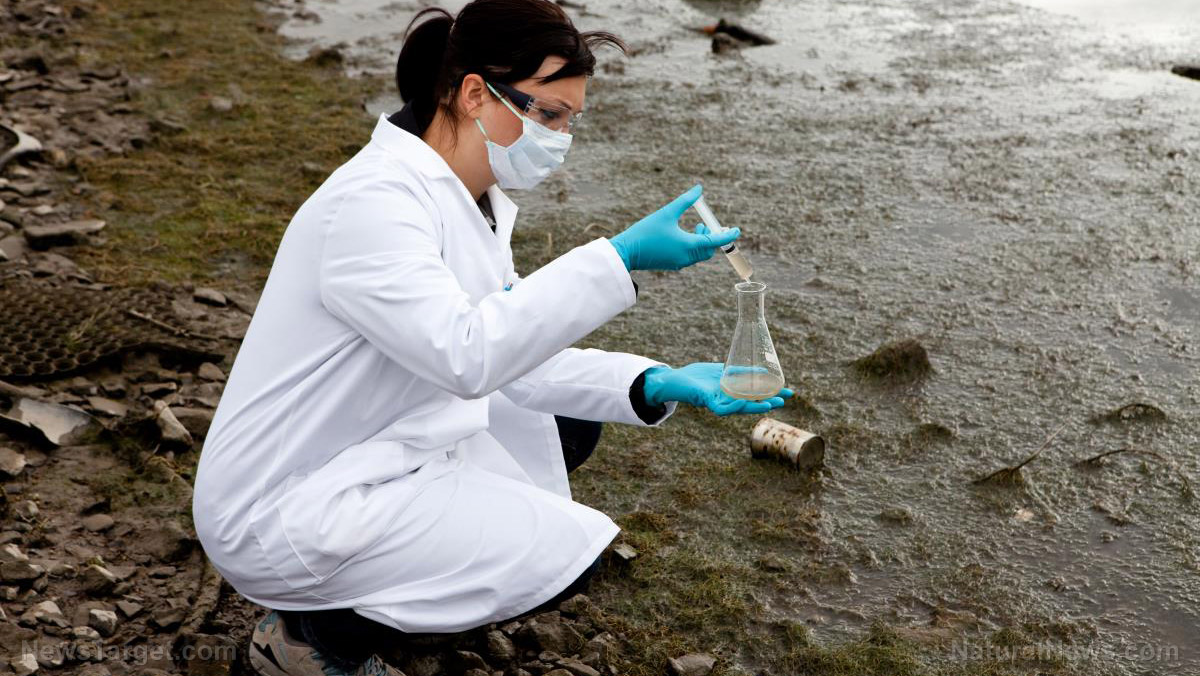6 Reasons you should be filtering your water
08/20/2018 / By Frances Bloomfield

Water is essential and good for your health, but sometimes it can be bad for you too. Contaminants, microscopic organisms, and other impurities can enter your body through your drinking water. Filtering your water not only makes it safer to drink but, according to a Livestrong article, can also improve the taste. The benefits of filtering your water are numerous, and we’ve listed some of them for your benefit.
- Filtering water removes pesticides — Today’s pesticides are more dangerous than before because modern variants easily dissolve in water and enter water supplies. Even more worrying is that pesticides can do this by infiltrating underground pipelines or your home’s plumbing. What does this mean? Every time you turn on the tap you could be ingesting chemicals meant to get rid of pests! An activated carbon filter is an affordable filter that works great against pesticides. The Environmental Working Group (EWG) notes that the popular carbon filter types include pitchers, large dispensers and faucet mounts, and that they vary in effectiveness.
- Filtering water removes lead — Old plumbing pipes and the solder used to join them can often cause lead to seep into your water. When ingested, the toxic metal can permanently affect your behavioral and brain function. Even just a small amount of lead can be deadly, as there is currently no treatment for lead levels in blood. As the saying goes, “better safe than sorry”, so consider investing in a good carbon filter, distillation filter or reverse osmosis system. A high-quality carbon filter combined with a reverse osmosis system is an excellent way to remove as many contaminants as possible from your water.
- Filtering water removes sediments — Sediments are impurities that include dirt, leaves, and clay particles. While they don’t pose any serious health risks, they can cause your water to develop an unpleasant taste. A good majority of home water filtration units come with replaceable paper filters to screen out sediments. Mechanical filters, which are usually made from metal screens, fabric, or paper,can also be utilized if desired.
- Filtering water removes pathogens — Contaminated drinking water contains a number of bacteria and parasites that are harmful to your health, such as cryptosporidium. This is a chlorine-resistant parasite that can cause diarrhea, and needs to be filtered out with mechanical filters. Giardia intestinalis, a similar parasite, can cause Giardiasis, an infection in your small intestine with symptoms that include vomiting, nausea, and loss of appetite. Additionally, it can survive in its chosen environment for months at a time. Filters listed as nano-, ultra-, and micro-filters are usually your best bet against parasites and bacteria.
- Filtering water reduces minerals — Iron, manganese, calcium, and other minerals aren’t dangerous to your health. They can, however, cause other problems. Minerals can build up in water pipes and eventually clog them, causing plumbing problems in time. Aside from that, minerals like manganese or iron can cause clothing stain and discolor dishes. Additionally, minerals can also make water taste metallic.
- Filtering water lowers chlorine — This affordable and easy-to-use substance is often used by municipal water utility companies to treat drinking water. It’s an effective disinfectant against bacteria and some viruses, but it can make your water smell and taste awful. It can even react badly and produce hazardous compounds if it comes in contact with certain metals. Much like with pesticides, an activated carbon filter is good for removing chlorine from your water.
Sometimes it’s the little things that make the most impact. The benefits of filtering your water are not always talked about, but it is definitely a subject worth noting!
Sources include:
Tagged Under: chlorine, clean water, contaminated water, drinking water, Lead in water, minerals in water, pathogens in water, safe water, water filter, water filters



















